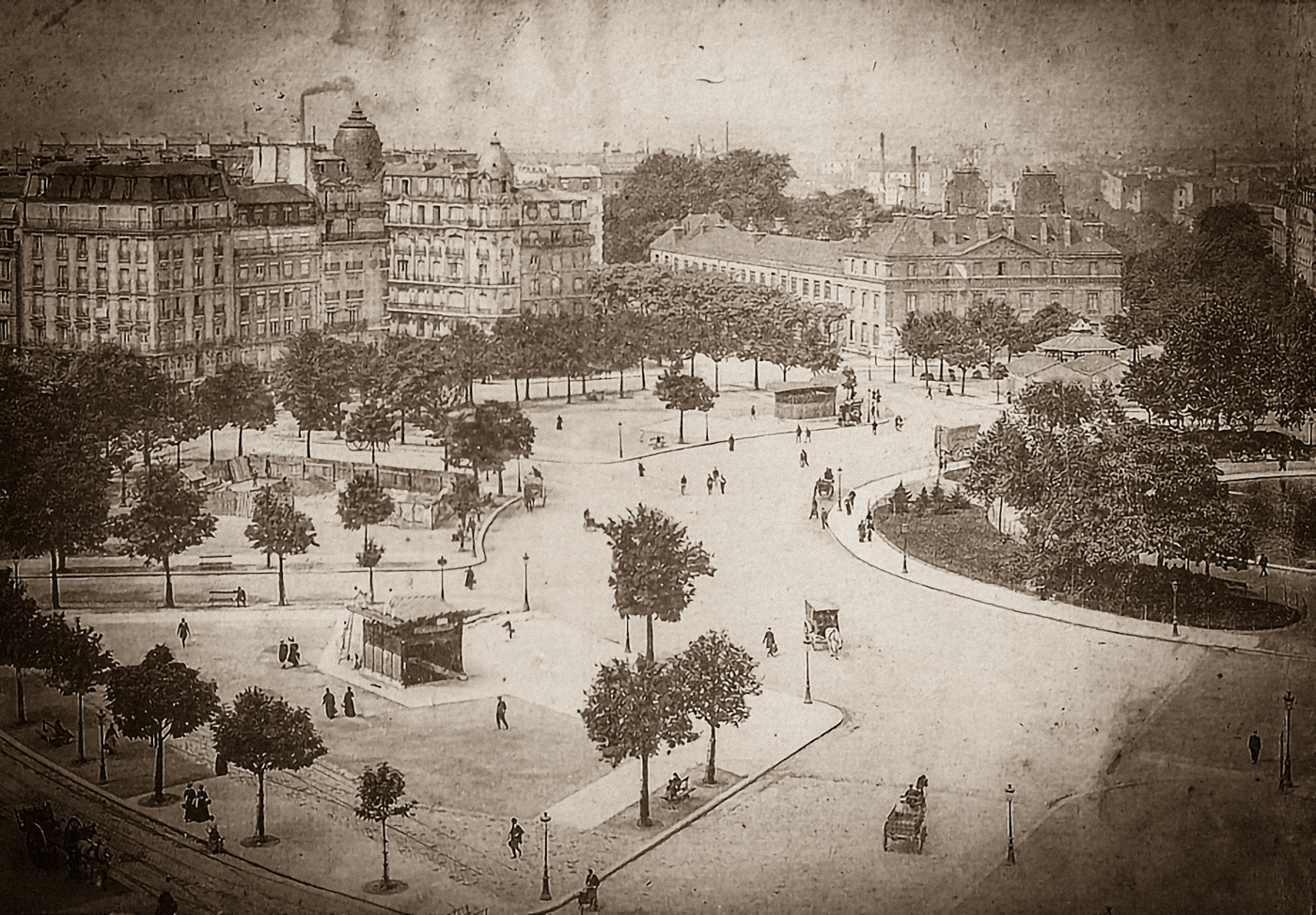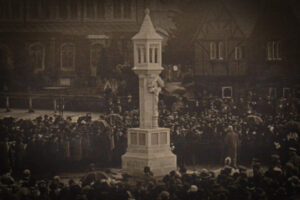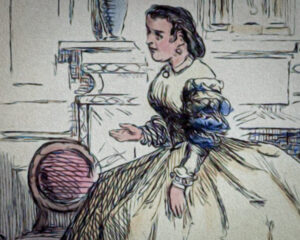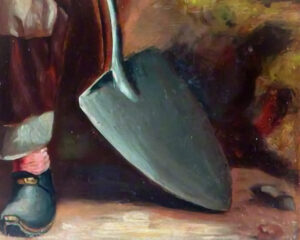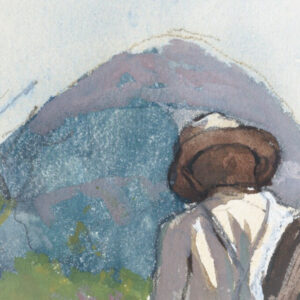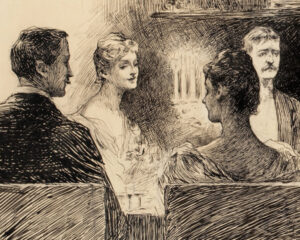Talking to Strangers

Dr. Dixie Dillon Lane
When I was a little girl, people often told me not to talk to strangers.
I did not pay much attention to this admonition, however, considering that it probably only really applied to creepy strangers outside the gas station. So when a strange store cashier would ask me my name, I would cheerfully tell her it was Dixie, but that I didn’t know whether I was named after the song (“Dixieland”) or the song was named after me. And I always politely thanked the security guard on my way home from school when he handed me my daily piece of candy (as he did for all the kids, with our parents’ permission). I also got my own bank account early and gravely conducted my own transaction with the teller when it was time to contribute to a family purchase.
As I grew, I continued to enjoy these little exchanges in the public square, and I think my parents did a good job of teaching me how to conduct them safely and politely. After all, without such contact with strangers, what social fabric do we have? What is there to connect us? No, talking to strangers (responsibly) can in fact be a very good thing.
When we moved to France for my father’s work when I was eleven, this habit of friendly chatting continued to stand me in good stead, for I knew not a lick of French and was, come August, unceremoniously thrust into an actual normal French public middle school. Fortunately, “just like my country, I was young, scrappy, and hungry,” so I was unafraid to make mistakes as I fumbled my way through learning the language by immersion and making friends by happenstance. When the bemused owner of a crêpe stand asked me, as a group of striking laborers passed loudly down the street, whether I was striking, too, I gravely replied, “Yes, sir,” for I had not the slightest idea what he was talking about.
I made a lot of friends of strangers in Paris. I was safe there, for the French culture at the time looked out for children, and no one paid kids out alone in public any mind except to be kind or to tell them off for taking a seat on a bus when an elderly lady was standing. It was a good place to learn many things and meet many people — if you were willing to talk to strangers.
My favorite stranger to talk to did not remain a stranger for long. This was Jean Capdeville, a shopkeeper whom I met not long after my family took up residence in our rented apartment off of the Place de la Nation. Nation looks on a map very much like a huge wheel with boulevards running off like spokes in all directions, and my older brother and I had occasion to explore all of them during the fifteen months of our stay.
The Librairie Capdeville, Monsieur’s remarkable bookstore, was located about halfway down the first block of one of these, the Rue Fabre d’Eglantine. It had a thin, old wooden door and, once you had opened the door with a creak and the ringing of a silver bell, a single narrow aisle that stretched out only a few feet before turning out of view into the tiny office at the back of the shop. Always, at the end of this aisle, stood Monsieur Capdeville. So narrow was the walkway that if another patron was already in the shop before you, you could not enter until that person had finished his or her business and backed gingerly out.
For the aisle was defined not by railings or walls, but by stacks and stacks of precariously balanced books. These books towered nearly floor-to-ceiling on either side of you — not shelves of books, mind you, but seven-foot stacks of them — and as far as anyone could tell, the stacks continued without interruption all the way to the actual walls of the room on every side.
Monsieur was perhaps in his late fifties when I met him. He had a long gray beard, which descended from an impressive mustache; a slight, sprightly body; and a personality both excitable and warm. He regarded me always with a respectful seriousness and treated me, a curious preteen foreigner who spoke almost no French, entirely as an equal.
He regarded me always with a respectful seriousness and treated me, a curious preteen foreigner who spoke almost no French, entirely as an equal.
It was Monsieur Capdeville who first introduced me to the joys of the Astérix comic books, staples of French childhood, which delighted me immediately. I saved my allowances carefully and every two or three weeks would appear in the bookstore doorway and announce, “Monsieur, I have come for another Astérix!” At which point, mumbling something congenial, he would disappear for a moment and then return from heaven knows where in that pile of books to hand me just the right one.
Not once did he need to be reminded which volumes I had already read. He always remembered.
In this way, as my command of the French language quickly grew, Monsieur curated for me an education in French literature (and comic books) appropriate to my age and interests. Astérix was but a gateway. Soon he had me reading everything from de la Fontaine’s fables to Molière’s plays. When my family returned to Southern California more than a year later, I refused to part with a single one of the books he had recommended to me; and my father, a man of great understanding in such matters, had them shipped back to the States for me among his work things.
Once you have lived in another culture as a child, you develop a split sense of place. In France I had been homesick for California, but in California I was homesick for France. It is extremely disorienting to reinvent yourself in another culture and another language to the degree that your speech, habits, and even thoughts happen in that context, and then to have it all disappear. So my brother and I made plans to return to France for a long visit in the summer after his high school graduation, when I was about fifteen.
After dropping our bags at our hotel and sleeping off a little of the jet lag, my brother went off to meet a school friend and I went off to find Monsieur Capdeville, grabbing a pain au chocolat at a bakery along the way. I found the Librairie just as I had left it, and Monsieur overjoyed to see me. He asked immediately after my brother and my parents.
Here, I hesitated. For the biggest change that had occurred in our family since I had last seen Monsieur was not our move back to California, but the sudden death of my mother a few months after we left Paris.
The problem in telling Monsieur about this was that I did not know any French euphemisms for death. Learning the language as an eleven-year-old among French eleven-year-olds, the delicate discussion of death had simply never come up. I didn’t know how to say “passed away” or “we lost her.” I only knew how to say, “she is dead.”
So that’s what I said. “Monsieur, I am sorry. I don’t know any other way to say this. My mother: she is dead.”
Monsieur looked at me for a moment, his head cocked characteristically to the side and his arm resting on a stack of books, and he said, “But Dixie, my dear, that is the only way to say it. That is the truth. That is the reality. She is dead.”
It was one of the most compassionate condolences I have ever received. For this affirmation of unvarnished truth, softly spoken, showed that Monsieur Capdeville believed that I could accept and endure even the harshest realities of life without needing to fear or hide. It also told me that he was willing to stand in that reality with me, that there was no need for me to pretend with him. And this he could only speak to me and of me because both he and I were willing to stand there together talking, just as we were, in real life.
We went on to talk about books, as usual, and in fact, he gave me a fascinating little volume on Columbus for free that day, although I paid for my Astérix. I returned to chat two or three more times during that visit to Paris, and always made a point of stopping by once or twice whenever I returned to the city in the following years. Monsieur always remembered me; he always recommended just the right books; and I always felt known, valued, and embraced.
But the last time I visited, Monsieur and his bookshop were not there. Off they had gone, into retirement in Normandy, perhaps; or, and almost certainly by now, into the passage of death. And for the loss of Monsieur Capdeville and his bookshop, I grieved. I had so dearly wanted to introduce him to my husband, Chris, and to tell him of my adventures in graduate school so far.
Since he was not there, however, Chris and I headed instead down another nearby boulevard. On the way, we stopped at the corner store where I used to buy penny candy after school sometimes, especially the fabulous multi-flavored Malabar bubble gum, which my friends and I had used as currency in our schoolyard wagers. When we stepped into the store, the owner, a French-speaking Tunisian, exclaimed aloud: “But . . . you have returned!”
Reader, this man remembered and recognized me on sight, though he had not seen me in fifteen years, and he had never seen me grown.
“And how is your father, the American with the glasses and the beard?” he asked.
When we stepped into the store, the owner, a French-speaking Tunisian, exclaimed aloud: “But . . . you have returned!”
We chatted, I bought some Malabars, and I introduced him to Chris. As we left, he grasped my hand: “Before you leave, you must promise to bring your firstborn child back here to this shop someday.” I promised, and I left.
We have not been back to Paris since then. But we have indeed had our firstborn child (plus three more), and I have not forgotten my promise. My husband’s next academic sabbatical will come a year or two from now, and already we are making plans for travel. And by hook or by crook, I will soon fulfill my promise.
For my firstborn is now the age that I was when I first met Monsieur Capdeville. And I have never told my children not to talk to strangers. We should certainly talk at length with our children about how to talk to strangers safely, of course; about what to do if they ever feel unsafe, about how they must never get in a stranger’s car or enter their house, and about how they can trust their parents will never be mad at them if they overreact and offend someone who was actually trying to be kind. We should also supervise them around all strangers until they are old enough to confidently manage themselves on their own in an unfamiliar environment. Sadly, research shows, after all, that children are most at risk of kidnapping and abuse from family members and close friends; therefore it is teaching children about boundaries and not keeping secrets that is most important for protecting them from this kind of harm. It may in fact be protective for children to know how to talk to strangers, so that if they ever are in danger when we are not nearby, they can get help. As my mother always told me, “If we get separated and you need help, look for another mother nearby—a woman with children—and ask her to help you find me.”
Today we have things backwards. We blithely reveal our deepest vulnerabilities to strangers on the internet, yet we fear speaking with our flesh-and-blood neighbors so much that my local Aldi now boasts eight no-contact self-checkouts and only one real, live cashier.
The truth is that much of the time, it is in fact good to talk to in-person strangers (and to be a bit more reserved with internet ones). To talk to them, and to make of them friends. I believe that much like the Place de la Nation, people like Monsieur Capdeville and the man at the corner store and I myself are the hubs of little wheels, and our interactions with each other are the spokes that run out (like Nation’s boulevards) to connect us with one another across place, time, and other boundaries. Monsieur Capdeville and so many others have taught me that it is not enough to have your little cohort of family, friends, coworkers, schoolmates, and co-religionists, where sameness links you together. This cohort is essential and irreplaceable, and where all connection should begin. (Many of us do not even have this inner circle yet settled, alas.) But our civic society also cannot function without connections to local strangers.
Much has changed since my childhood year in Paris. Due to the way that the internet and other technologies have altered our interactions with one another, we now live in an internet-based, work-from home, self-checkout, avert-your-eyes, fear-based society. One result is that we have exchanged talking to real, live strangers in our local contexts for obsessing over strangers online, people from whom we can hide our true selves. Shoot, we don’t even have to show them our faces! Indeed, we can feel as though we are friends with internet personalities despite the fact that we most certainly are not, and this scratches a social itch for us but does little for out actual growth, whether individually or as communities. These strange internet voices may take pride of place in our heads and easily manipulate our ideas, but the owners of them never learn anything about us at all and, in fact, may present entirely differently to the people they know in their physical communities than they do to us online.
It is the strangers around us, the ones in the bookshop and the grocery store and across the fence, who are our real neighbors. These are the ones worth talking to. These are the ones with whom we can weave the fabric of a real community. Do we wish to grow in truth, beauty, and love? We’ll find that much more efficiently and personally via the local Monsieur Capdeville than in even the most “engaging” social media post.
So, let’s reconsider talking to strangers, and in particular real, in-person strangers. Social media is not a community, not really. It gives but small comfort and hides a great deal. But if we start asking the names of our local librarians, telling the cashier at the grocery store we’re sorry about the rude attitude of the woman in front of us in line, or commenting to the guy who is watering the plants on Main St. that we really appreciate the care he puts into making the town beautiful, we will, in fact, build a real community across many dividing lines.
The stranger on TikTok may look pretty, accomplished, and confident. The people we pretend to know on Instagram may offer infinite, scrollable distractions from the ups and downs of real life. Yet it is the stranger in the winding aisle of a bookstore — not out there in the nebulous digital world — who will one day see and respond to you with the kind of personal, real-life honesty and affirmation that you especially need.

